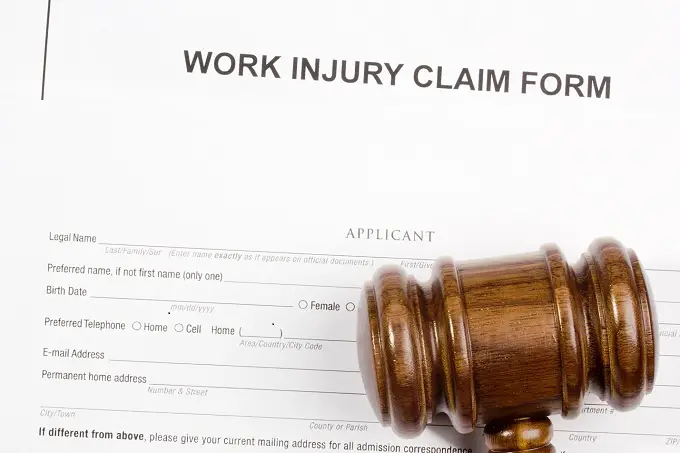Workers Compensation Laws by State: The Basics of What You Should Know

Over 140 million workers in the United States are covered by workers compensation insurance. This figure amounts to nearly 94% of the total workers.
Workers compensation laws by state are a system of rules which governs each state. The law covers all expenses or injuries of employees who get harmed in the line of duty.
It allows employees to recover medical expenses, lost wages, and disability payments. The mandatory employer contributions finance the system, but the state administers it.
Understanding Workers Compensation Laws by State
The primary aim of workers compensation is to remove injury related risks for both the employer and the employee.
It replaces the traditional personal injury litigation where the sick or injured employees file a lawsuit to prove that the employer is responsible. This results in delays. Chances are high that the employee might lose the case and recover nothing.
From the employer's side, workers compensation reduces litigation. When an employee gets hurt, the employer is only held responsible for the regular contributions. In some cases, however, the premiums increase after several claims.
In essence, the workers' compensation is a type of insurance program. It is compulsory in many states. In exchange for the certainty that the law provides, the system carries a price for both employers and workers.
Firstly, it stops workers from suing their co-workers or employers for negligence. Secondly, the compensation they get is lower than what they get in lawsuits. For employers, premiums are a major drawback. They are an extra payroll which the employer must pay regularly.
The premiums, as well as the terms of compensation, vary in each state. The states decide for themselves the employer's responsibilities to workers and the type of injuries that the system should cover.
They also determine the type of award that the employees should receive. Even so, the states have common goals rooted in public policy.
The Procedure of Contested Cases
When a worker is involved in an accident while at the job, the first step they take is to file a compensation claim.

The most common reported accident in workers compensation claim is material handling, according to Travelers Injury Impact Report. Material handling contributes to 32% of reported cases, followed by 16% trips, slips and falls, and so on.
After reporting, the employer is then informed about it and is given an incentive to accept or dispute it. Employers can dispute cases because a worker may exaggerate the injury, or even make a false claim.
If the management disputes the case, the compensation board investigates the incident to determine the final decision. During the investigation, the employee acts as a physician. They evaluate on behalf of the state.
When the board rules that the system does not cover the workers claim, the board sets a time for an appeal status to start. The administrative law judge conducts the mater as the officials listen to make a final judgment.
In many states, workers compensation is mandatory. However, if it's not compulsory in your state, you can voluntarily take part in the program to ensure that your workers are safe.
Compensation Benefits Payable to Work-Related Injuries Only
According to Wesellworkerscomp, workers compensation benefits are for work-related injuries only.
Self-inflicted injuries or those that happen due to substance abuse and intoxication are not covered. Also, the insurance covers occupational diseases set out by the state.
When Is an Injury Work Related?
A work-related injury is an accident which happens when doing work for your employer.
Although many people only consider those accidents that happen within the business environment, others occur in the company's vehicles and other places. These include social events and company parties sponsored by the company.
For instance, a company-sponsored holiday is a work-related activity. But, if you and your friends decide to go out for drinks during that holiday, that will not be work-related.
When an injury occurs during lunch break, the law considers it work-related if it happens in the firm's cafeteria. It’s also work-related if it's on the employer's grounds, or has a direct connection with work.
A good example is when the injured employee was out for lunch with a potential client. Also, the law covers mental injuries which happen as a result of work. It also covers depression, which becomes worse due to work related activities.
Employees Covered by Workers Compensation
Each state covers employees using unique rules and regulations. For instance, Wyoming and Idaho states do not cover the undocumented workers.
Others like Texas, California, and Arizona include illegal immigrant workers. They also include independent contractors in the compensation plan.
Despite the variations, the law exempts undocumented workers. These include agricultural workers, seasonal workers, and domestic workers.
Benefits of Workers Compensation Laws
Workers compensation is valuable insurance protection. It protects your employees from the legal complications resulting from work-related injuries.
It also ensures that they receive immediate medical care and counseling to recover. When your employees are healthy, they work more. This improves the firm's productivity in the long run.
The compensation also protects your business. Workers compensation is like an investment. When your employees get hurt, you will not incur any expenses treating them.
Your company operates as usual despite the injuries. This is because its finances are not affected.
Workers compensation is also beneficial to employees. First, it saves them the hustle of running from one court to another to report their employers. Also, when a fatal incident occurs, compensation insurance provides death benefits to the employee's family.
Enrol for a Worker Compensation Program in Your State
Do these laws apply to you? In many states, the law covers all employers who have more than two employees. Although a few states exempt small business employers, their opinions on the number of employees vary.
We cannot underestimate the benefits of workers compensation laws by state. Every employer should take part in the program to secure the financial status. Joining the program will also protect their company image.
Before you join the insurance, go through the rules and requirements first. This will help you know your limits by understanding what’s covered and what’s not covered.




















